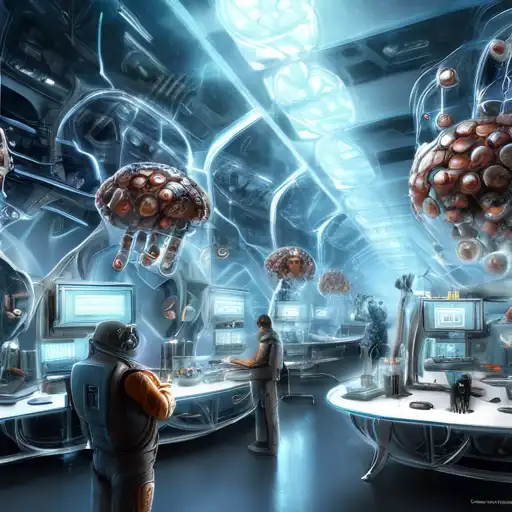Introduction to Nanotechnology
Nanotechnology, the science of the incredibly small, is making a monumental impact across various industries. By manipulating matter at the atomic and molecular level, scientists and engineers are creating materials and devices with unprecedented properties and functions. This article explores the vast potential of nanotechnology and its current applications that are shaping our future.
The Science Behind Nanotechnology
At its core, nanotechnology involves the study and application of extremely small things, typically less than 100 nanometers in size. To put this into perspective, a single sheet of paper is about 100,000 nanometers thick. This field combines principles from physics, chemistry, biology, and engineering to innovate at the nanoscale.
Current Applications of Nanotechnology
Nanotechnology is already transforming industries in remarkable ways. Here are some of the most impactful applications today:
- Medicine: Targeted drug delivery systems that attack cancer cells without harming healthy tissue.
- Electronics: Faster, smaller, and more efficient electronic devices, including flexible displays and quantum dots.
- Energy: Improved solar panels and batteries that store more energy and last longer.
- Environment: Nanofilters that remove pollutants from water and air, offering solutions to global environmental challenges.
The Future of Nanotechnology
The potential of nanotechnology is boundless. Researchers are exploring ways to use nanotech for building materials that self-repair, creating computers that think like human brains, and even developing nanorobots that can perform surgeries from inside the body. The future of nanotechnology promises to bring solutions to some of the world's most pressing problems.
Challenges and Ethical Considerations
Despite its potential, nanotechnology faces challenges, including high production costs, potential health risks, and ethical concerns. It's crucial to address these issues to ensure the safe and equitable development of nanotech innovations.
Conclusion
Nanotechnology is a testament to how small-scale innovations can lead to giant leaps forward. As we continue to explore the possibilities of this fascinating field, it's clear that nanotechnology will play a pivotal role in shaping the future of technology, medicine, and the environment. The journey of nanotechnology is just beginning, and its full impact is yet to be realized.
